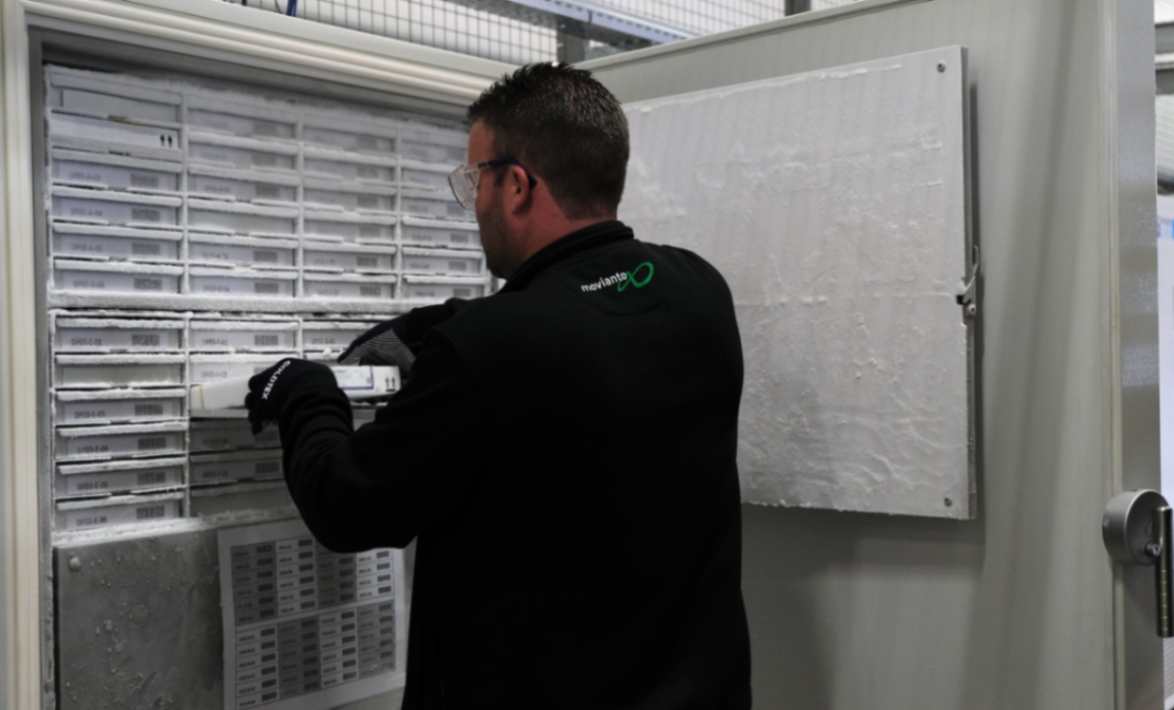
Movianto Expands Ultra-Low Temperature Logistics Network Across Europe for -80°C Healthcare Storage
Movianto, a specialist logistics provider for the pharmaceutical and healthcare sectors, has developed a comprehensive European network to support ultra-low temperature storage and transport at minus 80° Celsius.
With rising demand for international storage and distribution solutions in healthcare and pharmaceuticals, particularly for vaccines, research materials, raw substances, and an increasing range of biotech products, Movianto’s expertise in ultra-deep-freeze logistics is more crucial than ever.
‘We have scaled our expertise and capacity in this area, so that we now have ultra-low temperature freezers in nine European countries,’ says Thomas Creuzberger, CEO of Movianto, which belongs to the French Walden Group. ‘In two countries, namely Switzerland and Slovakia, we are still in the implementation phase. Otherwise, we can meet the growing demand of the pharmaceutical industry in this area at our own logistics sites in the United Kingdom, Belgium and the Netherlands, Denmark, France, Germany, Italy, Spain and the Czech Republic.’
The company has successfully adapted proven technologies and processes, extending its ultra-low temperature storage capabilities to nine European countries, with plans to include two more shortly.
Movianto offers secure transport services where products are either shipped in specially designed containers maintaining constant ultra-low temperatures or carefully thawed in a controlled environment prior to dispatch. From there, goods can be transported with active cooling at either frozen temperatures (minus 20°C) or refrigerated conditions (2 to 8°C).
Having invested in ultra-low temperature storage and shipping innovations for over a decade, Movianto accelerated these developments throughout the COVID-19 pandemic. Notably, the company implemented national solutions for centralized storage and wide-scale distribution of coronavirus vaccines in the Netherlands and the UK.
‘It’s not just a matter of getting the right special freezers, but above all of validating the equipment and securing all the associated processes,’ says Creuzberger. ‘We analysed the proven solutions, which were initially developed independently of each other, and then created a best practice model from them. This has now been transferred to all our national subsidiaries so that we are prepared for the increasing demand.’ Although the quantities of goods which need deep freezing are relatively small, they are of high value and need sensitive care. In addition to national tenders, there are an increasing number of tenders requesting capacities in various European countries. Creuzberger points to the growing number of biotechnologically manufactured products with special deep-freezing requirements. ‘But this temperature range is also becoming increasingly important in vaccine development. This is because, especially in the case of new vaccines, in early development phases insufficient stability data is available for different temperature ranges; this can only be obtained over time. And until then, in order to ensure 100 percent effectiveness, they are stored in ultra-low temperature freezers.’


